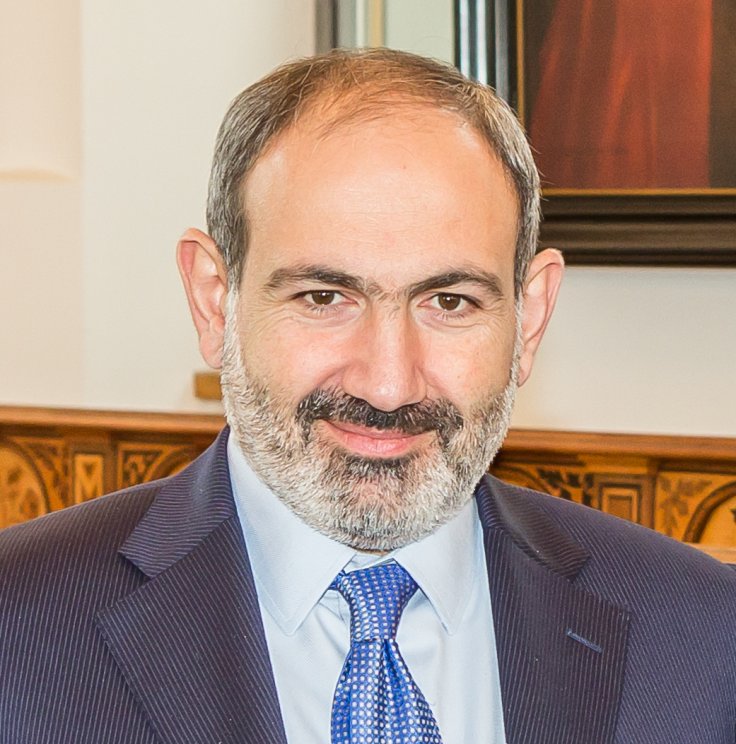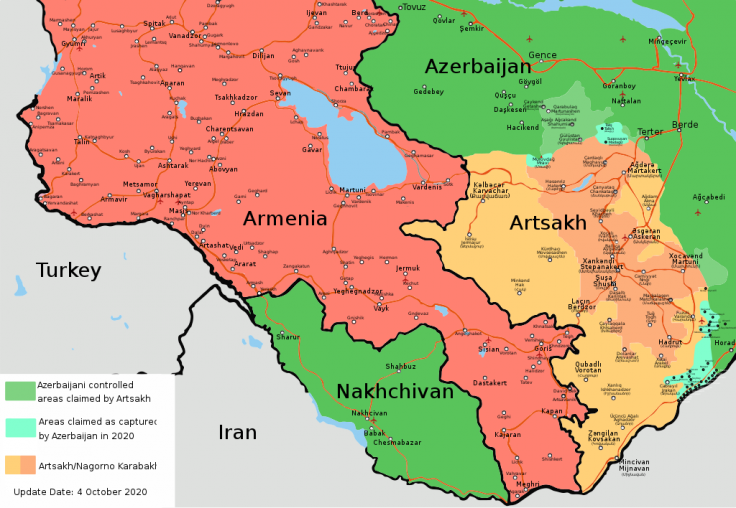The world has not reacted to the calls for help raised by Armenian Prime Minister Nikol Pashinyan even as the fighting in Nagorno-Karabakh is entering the second week.
The whole conflict is a vexed territorial dispute that can be traced all the way back to the dissolution of Soviet Union 30 years ago. But now, Pashinyan has drawn an acute charge against Azerbaijan.
He has said in unequivocal terms that a genocide is waiting to happen unless the world intervenes. "For them [Azerbaijan] the only solution is through ethnic cleansing of Nagorno-Karabakh, to be fully cleaned of Armenians and will fall completely under Azerbaijani control. This is a threat of genocide," Pashinyan told the Euronews.
But strangely, superpowers United States and Russia haven't offered a sensible reaction. The US is in the cusp of a highly divisive election, and President Trump is battling his own many demons. Russia is, on the other hand, taking a cold and calculated stand, wheeling and dealing with everyone involved in the conflict.
What is Pashinyan Saying?

The Armenian prime minister says the tiny minority of Armenians living in the disputed Nagorno-Karabakh are facing an existential threat. He says their towns and villages are under constant rocket fire from Azerbaijan.
"These people cannot just leave their thousands of years' homelands just because Azerbaijan demands so, they have to defend themselves and they have that right to self-defence. There is no other aim for Nagorno Karabakh here, but self-defence," says Pashinyan.
What's Azerbaijan's Stand?
For Azerbaijan, Nagorno-Karabakh is its territory and it will retake full control of the territory through force. The territory, an enclave within Azerbaijan where some 150,000 ethnic Armenians live, broke away from Azerbaijan in the melee following the break-up of the Soviet Union and the creation of the independent nations of Armenia and Azerbaijan.
Crux of the Conflict
The ethnic Armenian enclave is internationally recognized as part of Azerbaijan, but Nagorno-Karabakh has retained self control of the region with the backing of Armenia ever since the 1994 ceasefire. Now, Azerbaijan wants to change the status quo by force. Turkey, Baku's biggest backer, also wants to change the status quo. What Armenia and ethnic Armenians in the tiny enclave want is international recognition of Nagorno-Karabkah's freedom.
Why is Pashinyan Raising Fears of Genocide?
The ethnic Armenians are majority Christians, while Azerbaijan is mainly Muslim, giving the conflict a religious undertone and linking it to the Ottoman era oppression and mass slaughter of Armenian Christians. Turkey has refused to accept a genocide ever took place, though the International Association of Genocide Scholars (IAGS) undersocred the breadth of the targeted killing of Armenians by the Ottoman Turks during 1915-15. More than a million Armenians died under the persecution of the Ottoman empire.
The Armenians were driven en masse from eastern Anatolia to the Syrian desert by the Turks. Thousands of them were killed while more perished due to starvation and diseases. While historians around the world say the mass murder was carried out in order to annihilate the Christian Armenian people, Turkey has held the view that there was no systematic plan of ethnic cleansing.
Will History Repeat?
Pashinyan says the existence of ethnic Armenians is threatened inside the Nagorno-Karabakh region. The worry is what would happen to the vulnerable minority if full Azeri rule is established in the region by military force.
Pashinyan says a humanitarian catastrophe is unfolding. He cites the fact that Turkey is recruiting mercenaries to fight against the Armenians. "Today international terrorists are involved in the implementation of that genocide. They were recruited, brought to the region by Turkey. They are fighting on the side of Azerbaijan."
Turkey Globalizing Mercenary War?
Days ago, the Guardian reported that Turkey is actively transporting Syrian militants to Azerbaijan.
The open support of Turkey for the Azeri move to retake Nagorno-Karabakh is in stark contrast to the voice of caution raised by world leaders. While the UN and world leaders called for de-escalation, Turkish President Recep Tayyip Erdoğan has egged on Baku openly, and called Armenia the biggest threat to regional peace.
Earlier this year, there were reports that Turkey had hired 100 Pakistani mercenaries to fight alongside its soldiers and proxies in Syria. The Pakistan-backed militia arrived in Syria to fight alongside the Turkey-backed Free Syrian Army (FSA), the Eurasian Times reported, citing American journalist Lindsey Snell, who was once abducted by an Al-Qaeda affiliate in Syria.
Role of Afghanistan, Iran and Pakistan

Interestingly, a Radio Free Europe report suggests that it is only a matter of time before Afghan warlords send fighters to Azerbaijan too. In 1992, Afghan fighters were a crucial element in the conflict in Nagorno-Karabakh. The same tribe of mercenaries are eager to travel again and participate in the 'jihad', the report says, citing war veterans.
"If possible, I would again join the Muslims of Azerbaijan to defend them against non-Muslim ... My real motivation in going to Azerbaijan was participating in a jihad, but I also wanted to make some money," says an Afghan mercenary identified as Mohammad Younas.
He is one of the men who fought against Armenia after being recruted by Afghan warlord Gulbuddin Hekmatyar, the leader of the Hezb-e Islami, a major Afghan Islamist party.
The tales from his mercenary days prove that Pakistan and Iran were also passive accomplices in the mercenary move. A group of 300 Afghans from Hezb-e Islami were taken on a special flight from the Iranian city of Zahedan to Baku, and they had arrived in Iran through Pakistan, he recollects.
Pashinyan says his country is determined to avoid another genocide. He says he's in for a ceasefire but the international powers should make sure the ethnic Armenians in Nagorno-Karabakh are protected. Yervan would not wait for them to come and commit genocide on our people, he says.
"We have not attacked anyone. Our actions and the actions of Karabakh are only for self-defence. We have not and do not have the purpose to kill anyone. Our only purpose is to protect the Armenian people from another genocide. It is a self-defence purpose," says Pashinyan.








